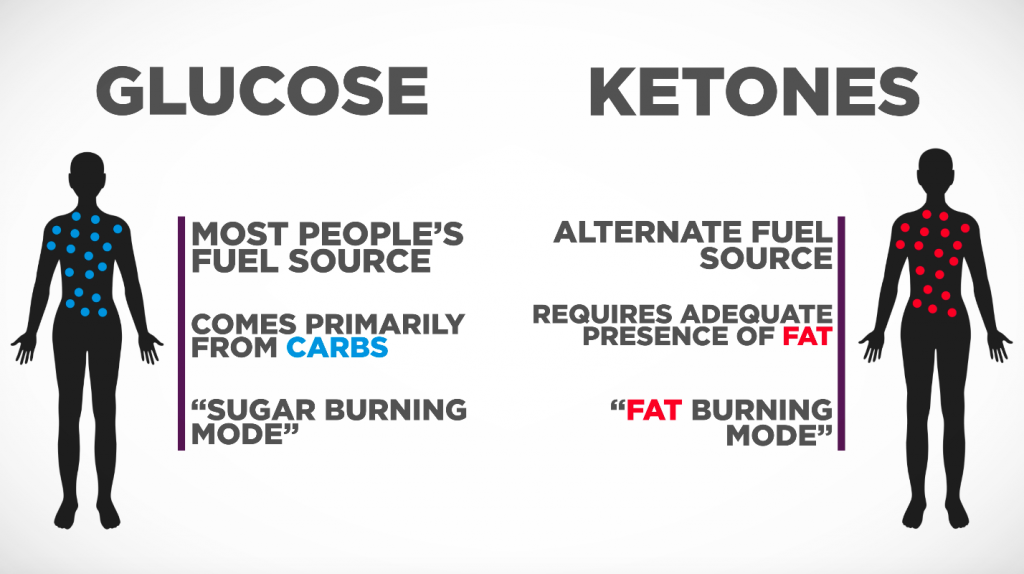Ketosis is a metabolic state in which your body uses fat and ketones rather than glucose (sugar) as its main fuel source.
Liver makes glucose which can be utilized by the body when energy is required. When carb sources are extremely restricted liver can make some glucose from the amino acids in protein. But this is not a sustainable process.
Ketosis is an alternate mode in which the body can operate to provide energy efficiently. In Ketosis, your body produces ketones at an accelerated rate. The Ketones are made by your body using fat( the fat you eat and the fat stored in the body are utilized in this process ). The three ketone bodies are beta-hydroxybutyrate (BHB), acetoacetate, and acetone (although acetone is technically a breakdown product of acetoacetate).
During sleep even on regular food intake the body manufactures ketones overnight when you sleep, but in very tiny amounts that can not be utilised for energy at all. But when carb intake is highly restricted, the glucose and insulin levels are controlled. This ramps up the process of ketone production.
Once the level of ketones in your blood reaches a certain threshold, you are considered to be in nutritional ketosis. According to leading ketogenic diet researchers Dr. Steve Phinney and Dr. Jeff Volek, the threshold for nutritional ketosis is a minimum of 0.5 mmol/L of BHB (the ketone body measured in blood).
Theoretically, your body can produce ketones in fasting also, but Keto diet seems to be a healthy alternative to lose fat and day by day more we are finding the health benefits through various studies .
